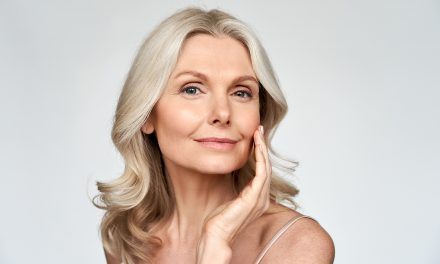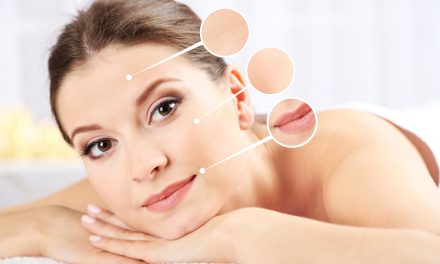As skin ages, it needs specific vitamins and minerals to stay healthy and vibrant. Nutrients like vitamins A, C, D, and E play key roles in maintaining skin elasticity, reducing signs of aging, and supporting repair. The best vitamins and minerals for aging skin include antioxidants and nutrients that promote collagen production and protect against damage from free radicals.
In addition to these vitamins, minerals such as zinc and selenium help fight skin inflammation and support healing. B vitamins also contribute by improving skin tone and moisture levels. Understanding which nutrients are most effective can guide better dietary and supplement choices to keep skin looking its best over time.
A balanced diet rich in these vitamins and minerals, combined with healthy lifestyle habits, can make a difference in skin health as one grows older. Learning how to support the skin at each stage of life helps maintain its natural glow and resilience.
Key Takeaways
- Certain vitamins and minerals are essential for maintaining skin health with age.
- Antioxidants protect skin from damage and support repair.
- A balanced nutrient intake combined with healthy habits promotes vibrant skin.
Essential Vitamins for Skin Health
Healthy skin depends on vitamins that support its structure, protect against damage, and help with renewal. Some vitamins boost collagen, others shield against harmful particles, and some strengthen the skin’s barrier to keep moisture in.
Vitamin C and Collagen Formation
Vitamin C plays a key role in producing collagen, a protein that gives skin its firmness and strength. Without enough vitamin C, skin can become weak and sagging.
It helps protect skin cells from damage caused by UV rays and pollution. Vitamin C also works with other antioxidants to reduce inflammation.
Foods rich in vitamin C include citrus fruits, strawberries, and bell peppers. Supplementing can benefit those who do not get enough from their diet.
Vitamin E: Powerful Antioxidant Protection
Vitamin E acts as a powerful antioxidant that fights free radicals, which harm skin cells and speed aging. It absorbs energy from UV light, protecting skin from sun damage that causes wrinkles and spots.
This vitamin helps maintain the skin’s moisture by strengthening its barrier. It often works alongside vitamin C in skincare products for combined effectiveness.
Sources of vitamin E include nuts, seeds, and vegetable oils. It is also found in many moisturizers and sunscreens to support skin health.
Vitamin A for Skin Cell Renewal
Vitamin A supports skin cell turnover, helping to shed old, damaged cells and replace them with new ones. This process keeps skin smooth and reduces rough patches.
It also promotes the production of new skin cells and supports wound healing. Vitamin A compounds can reduce acne and signs of aging.
Good sources include leafy greens, sweet potatoes, and eggs. Retinoids, vitamin A derivatives, are common in skin treatments.
Vitamin D and Skin Barrier Support
Vitamin D is important for maintaining the skin’s barrier, which locks in moisture and keeps out harmful substances. It also has anti-inflammatory effects that can soothe irritated skin.
Sun exposure helps the body produce vitamin D naturally, though supplements and fortified foods can help in low-light conditions.
Vitamin D supports immune responses in the skin and may reduce the risk of some skin conditions. It works best when balanced with other vitamins like E.
Vitamins for healthy skin explain how vitamin D helps with inflammation and barrier strength.
There’s a product that includes key vitamins and minerals essential for maintaining healthy, vibrant skin as you age. It’s formulated to support lasting youthful radiance by nourishing your skin from within. Let me know if you’d like more information! Learn more on our YouTube Channel Here: Valleant Health, or see us on Facebook Here: https://www.facebook.com/valleant
Key Minerals for Vibrant Skin
Certain minerals play a crucial role in keeping skin healthy, firm, and able to repair itself. They support the skin’s structure, protect against damage, and help maintain elasticity. These minerals work deep within the skin to support its natural functions.
Zinc’s Role in Skin Repair
Zinc is essential for skin healing and regeneration. It helps repair damaged skin by supporting cell growth and reducing inflammation. This mineral is often used to treat acne because it lowers oil production and fights bacteria on the skin.
Zinc also supports immune function, which helps protect skin from infections and speeds up wound healing. Adequate zinc intake can improve skin clarity and reduce redness. It’s commonly found in foods like meat, nuts, and seeds.
Selenium and Free Radical Defense
Selenium acts as an antioxidant that helps protect skin cells from damage caused by free radicals. Free radicals are unstable molecules that can speed up skin aging and cause wrinkles.
Selenium supports enzymes that neutralize these harmful molecules, preserving skin’s youthful appearance. It also helps the body respond to stress and inflammation, which can both harm skin health. Good sources of selenium include Brazil nuts, seafood, and whole grains.
Copper for Elastin Production
Copper is vital for producing elastin, the protein that keeps skin elastic and firm. Elastin allows skin to stretch and return to its normal shape, preventing sagging as people age.
Copper also supports collagen production, which works alongside elastin to maintain skin strength. It has antioxidant properties that protect skin from environmental damage. Foods rich in copper include shellfish, nuts, and dark leafy greens.
B Vitamins and Their Skin Benefits
B vitamins play key roles in keeping skin healthy by supporting repair, reducing irritation, and boosting moisture. Each B vitamin offers unique benefits that help maintain skin strength, calm inflammation, and lock in hydration for a more vibrant look.
Biotin for Strengthening Skin
Biotin, also called vitamin B7, is essential for strong skin. It supports the production of fatty acids that help form a protective barrier on the skin’s surface. This barrier prevents dryness and irritation.
People with biotin deficiency often experience rough, scaly skin and rashes. Taking enough biotin helps keep skin resilient against damage and supports natural repair processes.
In foods, biotin is found in eggs, nuts, and some vegetables. Some people choose supplements to improve skin texture, especially if their diet lacks this vitamin.
Niacinamide’s Anti-Inflammatory Effects
Niacinamide, known as vitamin B3, is well-known for reducing skin inflammation. It helps calm redness, irritation, and acne by strengthening the skin’s protective barrier.
This vitamin also supports healthy cell turnover, which prevents clogged pores and improves skin tone. It helps the skin better retain moisture while fighting environmental stress.
Topical skincare products often contain niacinamide for its soothing effects and ability to improve skin elasticity. It is a popular ingredient for sensitive and aging skin types.
Vitamin B5 for Hydration
Vitamin B5, or pantothenic acid, plays a major role in keeping the skin hydrated. It attracts water and helps lock it in, preventing dryness and cracking.
This vitamin also supports skin healing by improving wound repair and reducing redness in damaged skin. People with dry, irritated skin may benefit from B5 to improve softness and comfort.
B5 can be found in foods like poultry, eggs, and avocados. It is also common in moisturizers and serums aimed at restoring the skin’s moisture balance.
Learn more about B vitamins and skin health
Antioxidants and Skin Aging
Antioxidants help slow down changes in the skin that happen as people grow older. They protect skin cells from damage caused by harmful molecules while supporting skin repair. Combining different antioxidants and nutrients can boost their effects.
Protecting Cells From Oxidative Stress
Oxidative stress happens when free radicals damage skin cells. These unstable molecules come from sun exposure, pollution, and normal body processes. Antioxidants like vitamin A, vitamin C, and beta-carotene neutralize free radicals, which lowers the risk of skin damage.
Vitamin A supports skin renewal, while vitamin C helps produce collagen, essential for skin firmness. Beta-carotene safeguards the skin against UV rays. Eating foods rich in these antioxidants or using supplements can reduce oxidative damage and slow skin aging. More on antioxidants and skin aging.
Combining Nutrients for Maximum Benefit
Using multiple antioxidants together gives stronger protection than taking them alone. For example, vitamin C can regenerate vitamin E after it neutralizes free radicals, making both more effective.
Minerals like zinc also help antioxidants work better by supporting skin repair and immune functions. A diet high in vitamins A, C, E, plus minerals such as zinc, paired with healthy fats, provides a balanced approach to maintain skin health during aging. Supplements with this combination are often recommended by experts to protect skin from damage caused by aging and environmental factors. Learn about top skin vitamins.
There’s a product that includes key vitamins and minerals essential for maintaining healthy, vibrant skin as you age. It’s formulated to support lasting youthful radiance by nourishing your skin from within. Let me know if you’d like more information! Learn more on our YouTube Channel Here: Valleant Health, or see us on Facebook Here: https://www.facebook.com/valleant
Nutritional Strategies for Mature Skin
Mature skin needs specific nutrients to stay healthy and vibrant. A well-planned diet and, when necessary, supplements can support skin repair, hydration, and elasticity.
Dietary Sources of Vitamins and Minerals
Eating foods rich in key vitamins and minerals helps protect skin from aging. Vitamin A, found in carrots and sweet potatoes, supports skin cell growth. Vitamin C, abundant in citrus fruits, helps produce collagen for firm skin.
Vitamin E from nuts and seeds acts as an antioxidant to fight damage. Zinc, present in pumpkin seeds and lean meats, aids skin healing. Vitamin D, available through some fish and fortified foods, is crucial for sensitive or aging skin.
Including a variety of colorful fruits, vegetables, whole grains, and lean proteins ensures a steady supply of these nutrients. A balanced diet with these foods promotes skin health naturally and reduces signs of aging.
Supplements: When and How to Use Them
Supplements can help if diet alone does not meet nutritional needs. Vitamin D supplements are often recommended for aging skin, especially in low sunlight.
Vitamin B complex may reduce inflammation and pigmentation, assisting cell renewal. Antioxidant supplements like vitamins C and E can also support skin protection, but should not replace food sources.
It’s important to consult a healthcare professional before starting supplements. This ensures appropriate dosage and avoids interactions with medications or conditions. Proper use of supplements can enhance skin health safely when the diet is insufficient.
Lifestyle Factors That Affect Nutrient Absorption
Certain daily habits can change how well the body takes in vitamins and minerals essential for skin health. These habits influence the skin’s ability to stay strong and repair itself.
Impact of Sun Exposure
Sun exposure provides vitamin D, which helps maintain skin health. However, too much sun can damage skin cells and reduce the skin’s natural ability to absorb nutrients like vitamins A and E.
Extended sun exposure breaks down collagen and causes oxidative stress. This weakens the skin’s elasticity and repair mechanisms. Protecting skin with sunscreen helps maintain nutrient absorption and prevents damage.
People who spend a lot of time outdoors should balance sun protection with vitamin D intake from foods or supplements. This supports skin renewal and keeps skin vibrant as it ages.
Managing Stress Levels
High stress increases hormone production, which can reduce the body’s ability to absorb key nutrients like zinc and vitamin C. These nutrients are vital for skin repair and immune function.
Stress also triggers inflammation that can harm skin cells and slow healing. Reducing stress through activities like exercise, meditation, or proper sleep helps improve nutrient uptake.
By managing stress, the body better absorbs vitamins and minerals needed to keep the skin healthy, moist, and elastic. This supports a youthful skin appearance over time.
There’s a product that includes key vitamins and minerals essential for maintaining healthy, vibrant skin as you age. It’s formulated to support lasting youthful radiance by nourishing your skin from within. Let me know if you’d like more information! Learn more on our YouTube Channel Here: Valleant Health, or see us on Facebook Here: https://www.facebook.com/valleant
Tailoring Your Approach as You Age
Nutrient needs for skin change as the body ages. Adjusting vitamin and mineral intake helps address these changes. Professional guidance ensures the right nutrients and doses for maintaining skin health.
Age-Related Changes in Skin Nutrient Needs
As people age, their skin becomes thinner and less able to repair itself. The body also absorbs some nutrients less efficiently. For example, vitamin B12 absorption often decreases, affecting skin health.
Certain vitamins, like vitamin C and E, remain important for protecting skin from damage. Minerals such as zinc support skin healing and immune defense.
More collagen production support is needed because collagen declines with age. This requires nutrients like vitamin C and amino acids to maintain skin firmness.
Some supplements may become necessary to fill gaps, especially when diet alone can’t meet the skin’s needs. Adjustments should focus on antioxidants, hydration support, and nutrients that promote skin renewal.
Consulting With Healthcare Professionals
Healthcare professionals can guide which vitamins and minerals are best for an individual’s skin health. They consider medical history, current medications, and any nutrient deficiencies.
It is important to avoid excessive supplementation, which can cause side effects. A doctor or dietitian can recommend tests to check nutrient levels and tailor supplements accordingly.
Regular checkups help track changes and adjust nutrient intake over time. This keeps skin care safe and effective.
Discussing probiotics, omega-3s, or other supplements with a healthcare professional ensures they fit well with personalized health plans and goals.
Frequently Asked Questions
Certain vitamins and minerals play important roles in keeping skin healthy, repairing damage, and maintaining its natural glow. These nutrients support cell growth, reduce inflammation, and protect against environmental stress.
What essential vitamins are dermatologists recommending for anti-aging and glowing skin?
Dermatologists often recommend vitamins C and E because they help protect the skin from damage caused by free radicals. Vitamin C also supports collagen production, which improves skin firmness and reduces wrinkles.
Vitamin B3, or niacinamide, is praised for improving skin texture and reducing redness. Omega-3 fatty acids are also valued for maintaining skin moisture and elasticity.
Which specific minerals contribute to skin repair and maintaining its health?
Zinc is a key mineral in skin repair. It helps heal wounds and supports the stability of cell walls. Selenium is another important mineral that protects the skin from oxidative stress and supports its natural defense.
Are there any clinically proven supplements that enhance skin brightness and vibrancy?
Vitamin C supplements have been shown to improve skin brightness by aiding collagen synthesis and reducing dullness. Green tea extract is studied for its antioxidant properties, which can enhance overall skin health and vibrancy.
Omega-3 fatty acids also support healthy skin tone by reducing inflammation and promoting hydration.
What are the top nutrients necessary for preserving healthy skin through the aging process?
The combination of antioxidants such as vitamins C and E, minerals like selenium and zinc, and healthy fats including omega-3 fatty acids are critical to maintaining skin health as people age.
These nutrients help combat the effects of aging by supporting skin repair, hydration, and protection from environmental damage.
How can vitamins and minerals be utilized to alleviate skin rashes effectively?
Zinc plays a vital role in reducing inflammation and speeding up skin healing, making it useful for managing rashes. Vitamin E’s antioxidant properties also assist in soothing irritated skin.
In some cases, vitamin B3 (niacinamide) helps calm redness and inflammation associated with rashes.
What are the best dermatologist-approved vitamins for managing skin tone and whitening?
Vitamin C is widely recommended for evening skin tone and lightening spots due to its role in collagen production and antioxidant protection.
Niacinamide is also used to reduce discoloration and improve overall skin brightness safely. Maintaining a balanced intake of these vitamins supports healthier and more even skin tone.
There’s a product that includes key vitamins and minerals essential for maintaining healthy, vibrant skin as you age. It’s formulated to support lasting youthful radiance by nourishing your skin from within. Let me know if you’d like more information! Learn more on our YouTube Channel Here: Valleant Health, or see us on Facebook Here: https://www.facebook.com/valleant



















